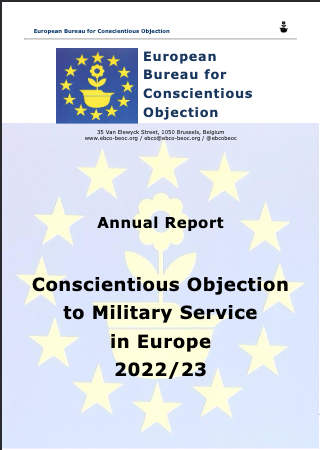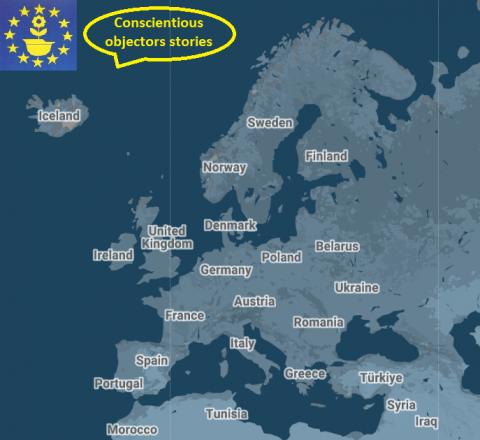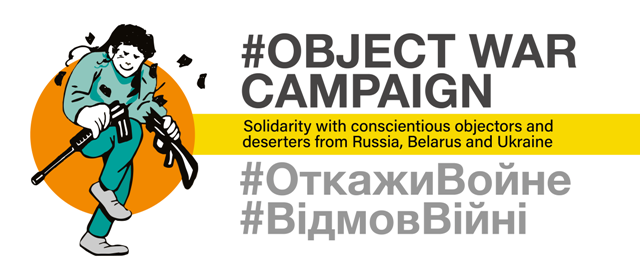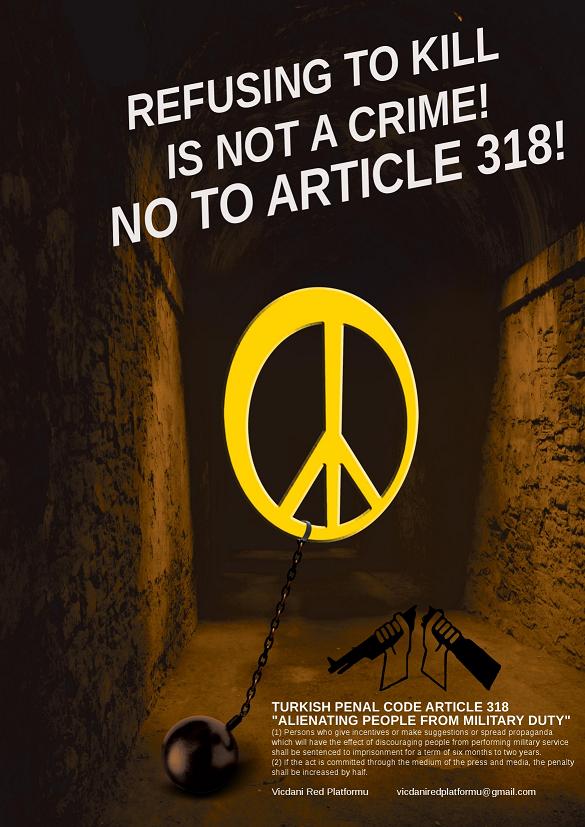GREECE: Recommendations at the UN Human Rights Council and European Court judgement highlight the urgent need for legislative reform on conscientious objection
Brussels, 14 October 2016
“In less than a year three different international human rights instruments have pointed out serious violations of human rights of conscientious objectors in Greece,” EBCO President Friedhelm Schneider underlined today. “This highlights Greece’s urgent need for legislative reform on conscientious objection, in order to comply with international human rights law and standards.” For this reason EBCO has decided to hold its next meeting in Athens, Greece (19 – 21 November).
The European Bureau for Conscientious Objection (EBCO) deeply regrets the rejection by Greece of all the recommendations made on the issue of conscientious objection in the Universal Periodic Review process of the UN Human Rights Council. Uruguay and Slovenia had underlined the necessity to reduce the length of civilian service to that of military service, to make alternative service accessible to all conscientious objectors instead of rejecting applications of those who are not Jehovah’s Witnesses and to end harassment and prosecution of conscientious objectors.
This implies also the rejection of last year’s similar recommendations of another UN human rights instrument, the Human Rights Committee.
Shortly after Greece had rejected the recommendations, the European Court of Human Rights (ECtHR) published its judgement on the case of Papavasilakis v. Greece (application no. 66899/14). The Court held, unanimously, that there had been a violation of Article 9 (freedom of thought, conscience and religion) of the European Convention on Human Rights.
The case concerned the authorities’ refusal to grant Mr Papavasilakis the status of conscientious objector and to allow him to do alternative civilian service instead of military service.
The Court found in particular that the Greek authorities had failed in their duty to ensure that the interviewing of conscientious objectors by the Special Board took place in conditions that guaranteed procedural efficiency and the equal representation required by domestic law. Mr Papavasilakis had been interviewed by a Board made up primarily of servicemen, two of the civilian members of the Board being absent but not replaced. The Court also found that that the Minister of Defence’s final decision, on the basis of a draft ministerial decision following the Board’s proposal, did not afford the requisite safeguards of impartiality and independence.
This is the first time that the ECtHR has found a violation of Article 9 in the case of a State which does recognize a right of conscientious objection to military service.
- EBCO reminds that the international standards demand that assertions of conscientious objection to military service shall be accepted without inquiry.
- EBCO recalls this year’s declaration of the Deputy Minister of National Defense, Mr. Vitsas, that the comprehensive arrangement of the issues concerning the conscientious objectors should not pertain to the Ministry of National Defense, and that the Ministry of Interior and the Ministry of Justice should undertake a relevant legislative initiative.
- EBCO reiterates its availability to assist the Greek authorities to bring legislation on conscientious objection in line with European and international human rights standards.










